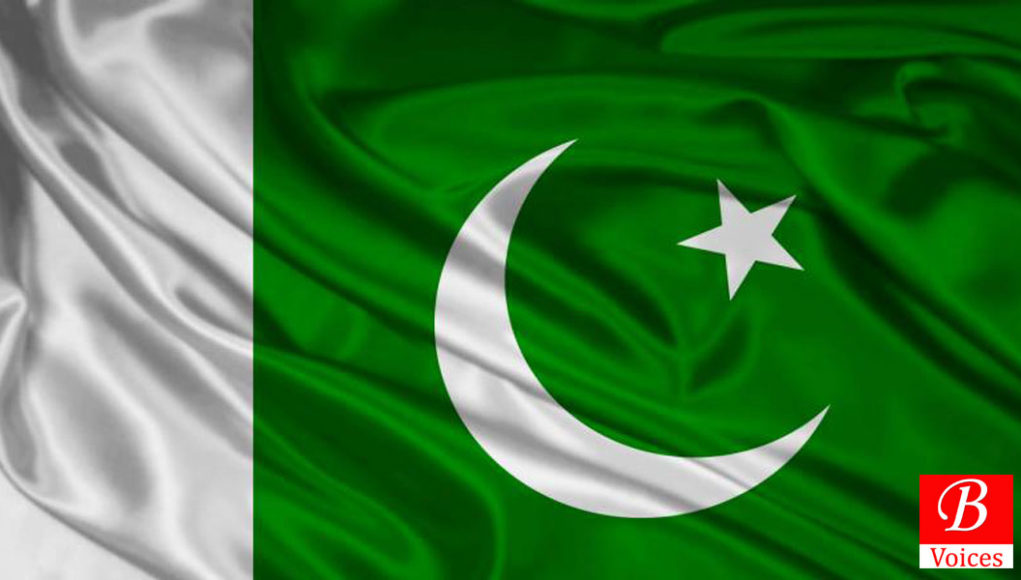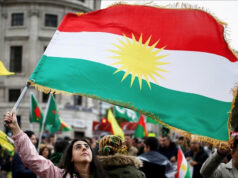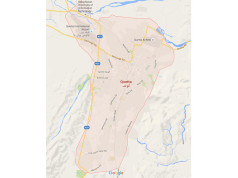 Suhail Khan Mandokhel
Suhail Khan Mandokhel
It is not too big a task to overview the problems faced by Pakistan. However, it has never been an easy course to chart such a future that would help Pakistan redefine its image because it is easier to explain problems but it is not that much easier to unfold the intricacies rooted in the defective foundation of the country.
Out of scratch, Pakistan initiated its journey on 14th Aug 1947 in the leadership of M. Ali Jinnah aimed at achieving functional nationalism. Founder of this country was optimistic as to future of this country but the genetic defect, inherent in the foundation of this country, compelled policy-makers to build an Islamic ideological state as a shortcut to resolving cobweb of inter-ethnic differences. In those latter days, military-bureaucratic elites would arrogate themselves the right to rule this country by presenting themselves as a savior. This de facto power had two options in their hand to resolve the congenital defect of Pakistan. One option was using the basic ideals of democracy- participatory governance, secularism and pluralism- and the second available but worst option was using religiosity and ideological nationalism. Power-holders resorted to latter option out of self-seeking interests and began to appropriate Islamism as politico-military strategic doctrine.
Notions of national security and existential threat from India were propelled by the establishment and co-evolutionists to counter pluralism and secularism. This set of detrimental factoids gave boost to the religious and communal superiority which finally resulted in sad episode of Bangladesh emergence and it proved costlier for Pakistan in terms of population, area and prestige. Pakistan lost more than half of its population, one-third of the area and much of left prestige in world. Subsequent to this tragedy, it was hoped that Civilian supremacy would be given due place in the administrative set-up but to utter dismay of people, policy-makers, as usual, retreated to shell and failed to address the issues which caused the cleavage of Pakistan.
Worsening the situation, Pakistan openly sponsored insurgents for soviet containment at the instance of US in the garb of strategic interests and thereby put itself in the crossfire of terrorism and indictment from international world. This scourge of terrorism took the toll on the country and according to a report titled ” Body count: Casualty figures after 10 years of war on terror ” released by International physicians for the prevention of nuclear war in 2013, more than 80,000 Pakistanis have been killed in the war on terror since 2001. According to another data released by the South Asia Terrorism Portal, 58,855 people have been killed in the wave of terrorism across the country from 2005 to 2016. Out of these, 42,094 casualties have occurred in Fata and K-P alone. This formidable death toll is an eye-opener for de facto rulers of this country to overhaul their policies without any detrimental delay.
Presently, deep-seated problems are raging in our country. Mistrust between Civilians and military, one of the major factors behind the severance of Bangladesh, is still manifest in civil-military relations as evidenced by the acute form of censorship and judicial activism.
Role of religion in state affairs, which has made Pakistan unfit for democratic values, still holds sway in society. Leading author Farzana Sheikh in her book ‘Making sense of Pakistan’ aptly writes, “It is country’s problematic and contested relationship with Islam that has most decisively frustrated its quest for coherent national identity”. Instead of shaving down the role of conservative Islam in the arena of politics, Politics of religion based on the Barelvi school of thought led by TLP has dramatically crystallized in the shape of widespread electoral support. This disturbing fact doesn’t bode well for the progressive future of this country.
Another besetting problem in Pakistan is lower literacy rate. Soon after independence, the literacy rate of Pakistan was 16.4% as against 18.3% that of India with such a larger population. Mystifyingly, this two percent difference in literacy rates of both countries has now expanded to sixteen difference leaving Pakistan with a literacy rate of 58 pc and India with 74.04 pc. Problems in our educational system like the outdated curriculum and gender discrimination are mainly responsible for our lagging behind India. Estimating the value of education in progress of the country, Government must take concrete measures as to the effect of modernizing curriculums and hastening female education in backward parts of the country.
More pathetic above all is the fact that Pakistan is far from establishing a well-defined constitutional document that would define the regular form of government in the country. Despite frequent re-writing of the constitution, we still couldn’t achieve an agreed-upon legal corpus. Our legal system is falling short of definite laws for different topical issues like juvenile delinquency and crimes against women. Not only this, penal code enforced in Pakistan is yet to be expanded by provisions with respect to newfound crimes in society. Contract Act, which governs the rules of financial transactions in the country dates back to 1872 and it is fitting to assume that such an outdated set of rules can’t meet the demands of modern society. Long and short of this issue is that our country badly needs structural modernization of prevailing laws.
Next comes the economic problems faced by Pakistan ever since independence. Balance-to-payment crisis, current-account deficit, increasing magnitude of imports, huge debts and downturn in foreign investments have been preventing the economic system from undergoing any plausible progress. At present, an IMF bail-out of $12bn looks inevitable. Rehabilitation of such a floundering economy needs drastic measures ranging from accountability of all power-holders, be that civilians or Army-men, to making a conducive environment for foreign investment.
Pakistan was ‘insufficiently imagined’, as put by Salman Rushdie, given the ancestral weaknesses and problems. Incompetency of civilian Government partly induced by the over-glorification of Military has landed Pakistan in the socio-political and religious crisis. It goes without saying that a civilian government can prove instrumental for solving problems only if it is not detracted by the unsavory interference of the deep state.
However, it is unfair to give civilians clean chit as they are equally responsible for the rampant corruption in the system and we can’t usher this country into a new era unless civilian leaders give value to the whims and wishes of common people.
Now is the time to think differently. Democratic values of free ideation and pluralism must be projected in the country. Every institute will have to avoid over-reach keeping itself in the domain exclusively described by the constitution. It is only then, Pakistan will be dubbed as a successful state in the world.
Writer is a student of LL.B at University Law College, Lahore and belongs to Zhob, Balochistan. Follow him on twitter @SuhailMandokhel
Disclaimer: Views expressed in this article are those of the author and Balochistan Voices not necessarily agrees with them.
Share your comments!








